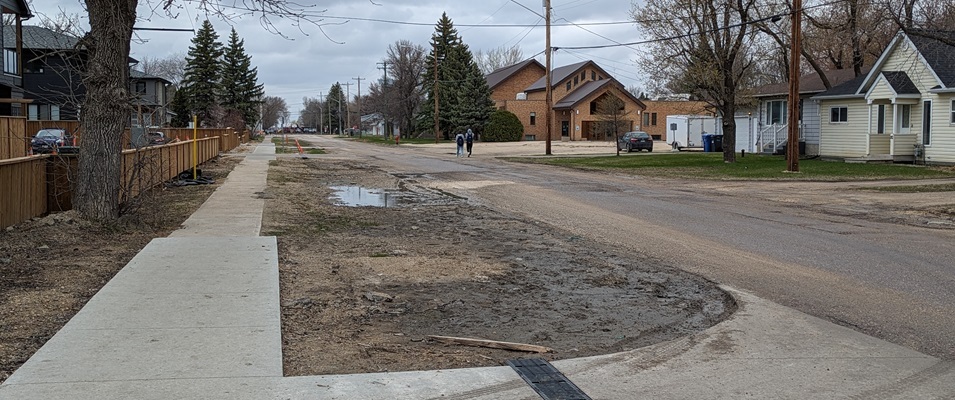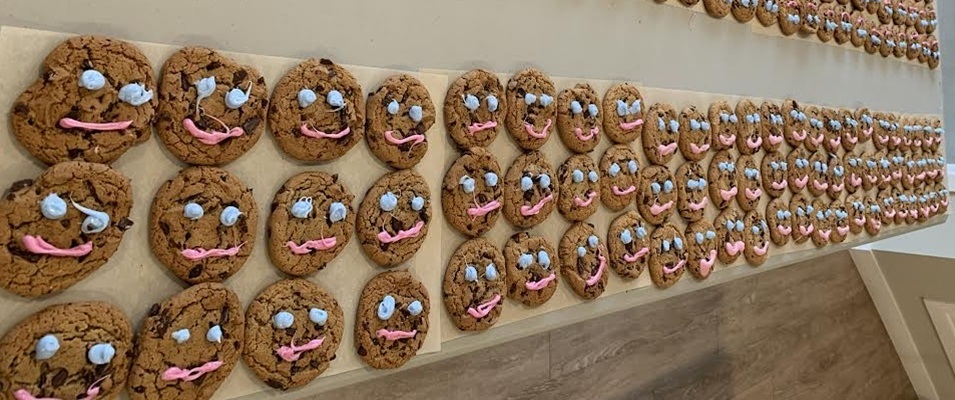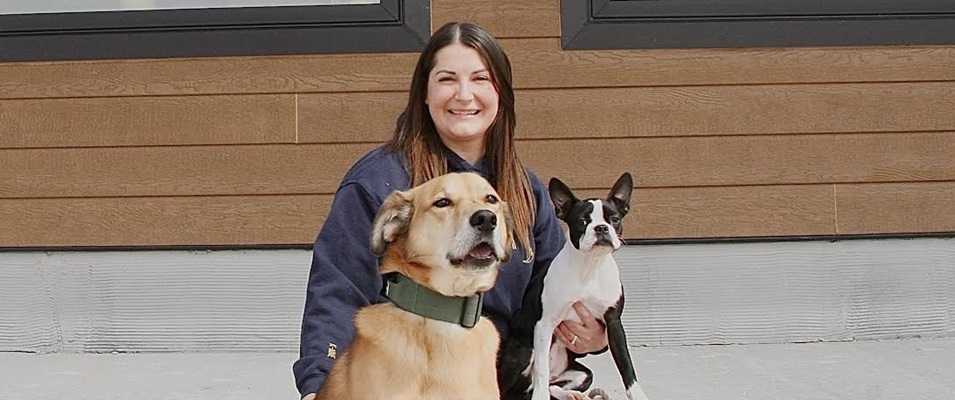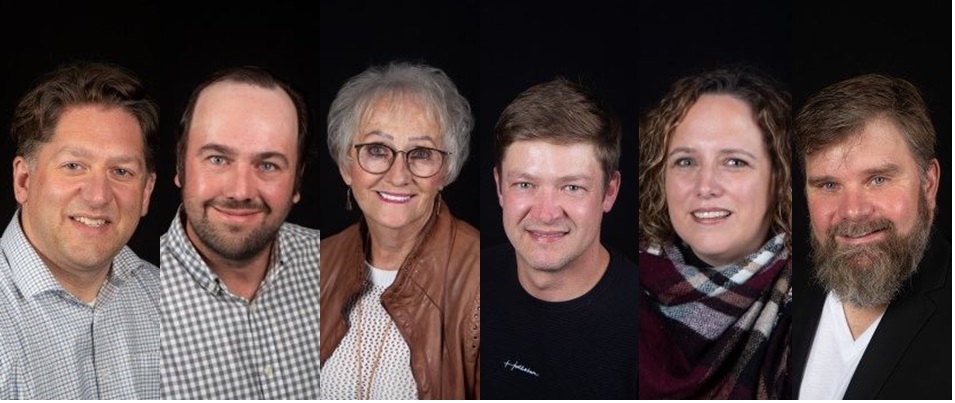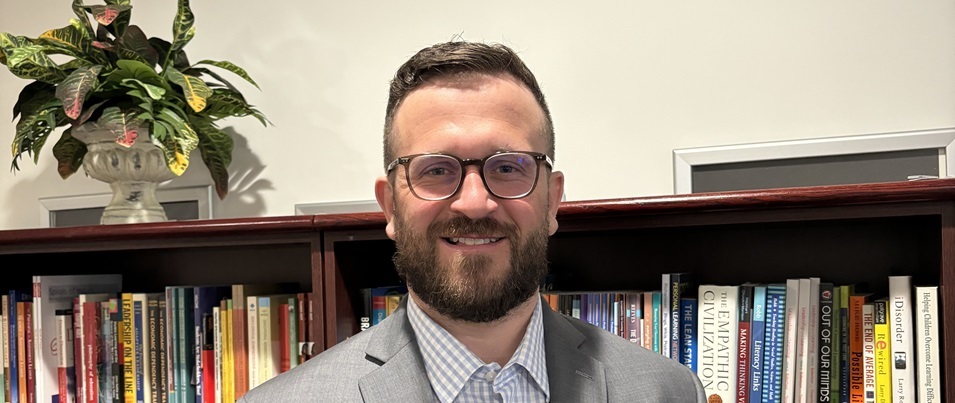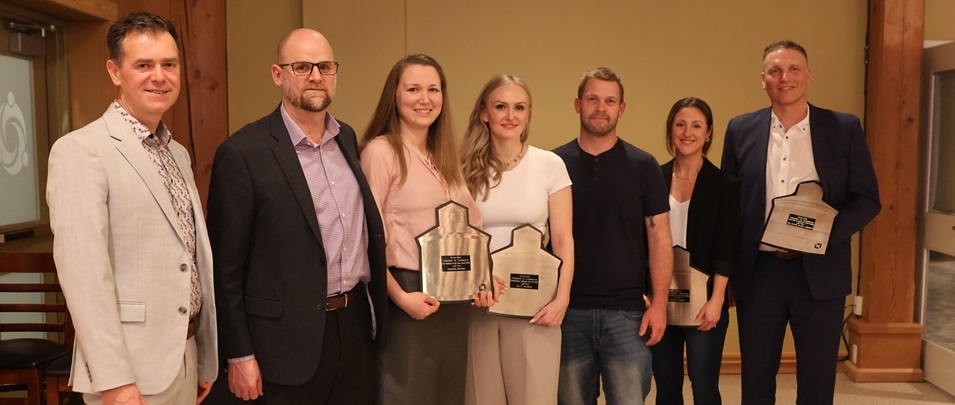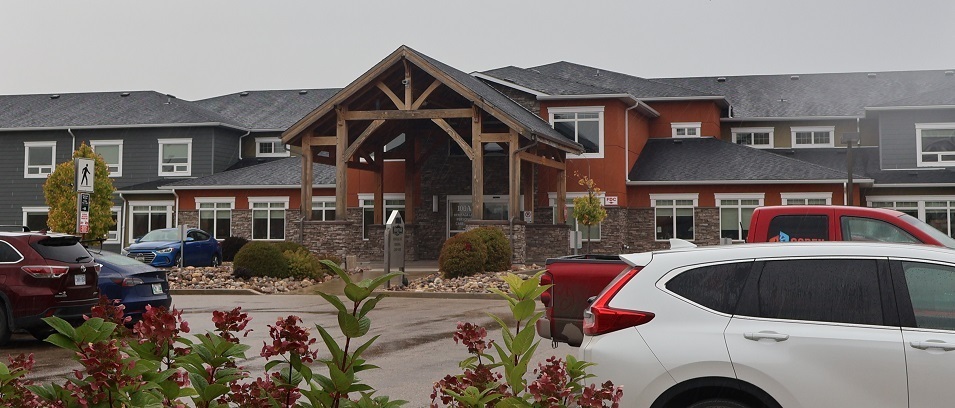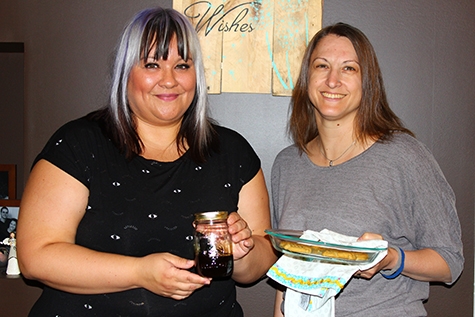
There’s a unique new support group in town, and on May 9 they held their first meet-up. A collection of medical cannabis users, the NV Support Group, gathered around one member’s kitchen for a hands-on workshop on cannabis-infused butter—or cannabutter, as it’s known in the cannabis community.
While you might be envisioning a group of tattoo-embossed rock band groupies looking for a new way to get high, the event, in reality, drew an eclectic assembly of professionals and tradespeople ranging in age from their late twenties to late fifties. Their shared interest: treating their varied medical conditions naturally with cannabis products.
Cannabis became legal for medical use in Canada in 2001 after the Canadian Court of Appeal declared its prohibition for medical purposes unconstitutional. Users must obtain a government-issued license through an application signed off by a physician.
The NV Support Group has been active on Facebook since January of this year. It originated as the Niverville Legal Cannabis Support Group, but due to changes in Facebook policy all implications of the still-stigmatized plant had to be removed.
Billie Fontaine is the original administrator of the site. Unsure of how the idea would be accepted in the area, she’s encouraged by its current membership of almost 300. The majority of them, she says, are local to Niverville and the surrounding area.
Fontaine is herself a medical cannabis certificate holder with added training and experience as a cannabis educator.
“A lot of people are telling their friends or family about the group,” says Fontaine. “It just gets you the information that you need.”
The Facebook site is private and new members must first request acceptance from the administrators. Members must be at least 19 years of age and indicate their intent before joining. The site is not open to solicitation or sales of any kind; it merely acts as a safe space where people can ask questions and gain insight before setting out into the poorly charted waters of medical cannabis procurement and use.
The site is dedicated to helping people along their own wellness journeys and provides informational resources for obtaining a medical cannabis certificate, finding a government-certified licensed producer, and determining which products and doses are right for you.
Fontaine’s Story
Fontaine, a cannabis oil user, recognized the need for this kind of support after dealing with a cancer that almost took her life four years ago. Today she is in remission, though she still suffers physical and emotional aftershocks from the cancer, chemotherapy, and pharmaceuticals.
In 2014, she was diagnosed with a very aggressive form of leukaemia. The doctors told her she had a 20 percent chance of survival. She underwent three equally aggressive rounds of chemotherapy with periods of isolation in between, intended to force her body into remission.
“I only survived three rounds of chemo because they almost killed me with the third,” recalls Fontaine. “It’s called the Red Devil. They have to watch you around the clock because this stuff can actually kill you.”
The reality of this it too close to home as Fontaine watched another woman, whom she’d befriended on her hospital ward, develop gastrointestinal bleeding from the same chemotherapy treatment and die.
The doctors subsequently performed a bone biopsy on Fontaine, which she describes as the most excruciating experience of her life. She was eventually released from the hospital but was required to return for regular monitoring.
When medical follow ups indicated that she was in remission, Fontaine says she felt an extraordinary sense of relief and joy, the survivor’s high that comes from beating the odds. But soon the emotional high wore off and she plummeted to a place of depression, anxiety, nightmares, and daytime jitters.
She was diagnosed with Post Traumatic Stress Disorder, a diagnosis not uncommon in cancer survivors. Her doctor prescribed lorazepam, an antidepressant with many side-effects and a drug which, Fontaine says, is highly addictive.
Pain, too, was her new daily foe. The cancer and chemotherapy had left her with damaged organs and an autoimmune condition. The doctor’s best advice was high doses of morphine or fentanyl, prescription narcotics used for acute pain relief.
Fontaine believed there had to be a better way. Her aunt had recently taken her own life after an unsuccessful back surgery and prolonged use of fentanyl.
Together with her open-minded doctor and oncologist, she began the path to obtaining a medical cannabis certificate and experimenting with cannabis relief.
“I’m weaning myself off of the antidepressants and I’ve been successful so far,” Fontaine says. “I’m really happy I gave the CBD a really good go. I didn’t want to be high or paranoid, so it worked for me.”
CBD versus THC
CBD (cannabidiol) and THC (tetrahydrocannabinol) are two naturally occurring compounds within the cannabis flower (bud) that work with the human body’s endocannabinoid system, a function which aids in regulating pain, appetite, mood, memory, immune response, sleep, and cycles of cellular life and death.
The THC component is responsible for the high that one experiences after consumption. CBD is non-psychoactive. Today’s modern science has allowed producers to manipulate cannabis plants to higher or lower concentrations of THC and CBD, and to develop products where the two can be completely separated.
CBD oil has now become widely used as a daytime option for inflammation and pain relief. THC is known for its effectiveness with depression, anxiety, and sleep disorders as well as many other ailments.
To avoid the psychoactive effects, many users choose to consume THC-containing products before bedtime and simply sleep off the psychoactive effects while it does its work.
Fontaine has now developed her own regime, dosing with CBD or THC at different times of the day in order to maximize its full effect on all her symptoms. Along with a clean diet, juicing, and her cannabis regime, she is managing to rein in her symptoms, allowing her to live a pharmaceutical drug-free life.
“You hear of people’s success stories and it gives you hope,” Fontaine affirms. “I’m not ready to die just yet. When I became a cannabis patient myself and began walking down this road, I was on my own. I had no one to talk to. Since then I’ve said to myself, ‘I will do anything so that people don’t have to feel alone when they go down the cannabis journey.’ I won’t give them cannabis, but I will certainly set them on the path that they need to go. I will hook them up with the right people and that’s exactly what I’m doing.”
After her near-death experience, Fontaine poured through medical cannabis materials and resources, eventually landing herself a job at a Winnipeg medical cannabis clinic called Natural Health Services (NHS). At NHS, patients are sent through several courses, reviewing their medical history with a nurse, applying for a prescription with a medical doctor, and eventually receiving guidance through an educator, all within the same facility. Fontaine’s job was that of educator, and her knowledge eventually garnered her the title “bud genius” among her peers.
“I’m really hoping that eventually we can find a doctor that will prescribe out here,” she adds. “It doesn’t take much. You just have to have a room to see patients and an educator on staff.”
Until then, Fontaine will continue to offer online education to people who are willing to give cannabis a try. She says she’s already seen many success stories from people who have gotten off their pharmaceuticals altogether.
“That’s what this group is about, taking control of your health,” Fontaine concludes. “People weren’t talking on the Facebook site at first. Now I’m so happy that people are feeling more comfortable and starting to talk on there.”
The site now has four experienced administrators, all medical cannabis certificate holders. Questions are welcomed on the public forum for all members to see or can be sent privately to the administrators for reasons of discretion, if desired.
John’s Story
John (not his real name) joined the NV Support Group shortly after it began and enjoys the camaraderie and support he’s experiencing among other medical cannabis users, not to mention the long list of resources he can access on the site. He’s in his 40s and works in information technology. He describes himself as an average family man who contributes to society and does not create discord.
John suffers from diabetic neuropathy, a type of nerve damage that can occur as a result of diabetes. High blood sugar can cause injury to nerve fibres throughout the body, but most often it damages nerves in the legs and feet.
“I went undiagnosed as a diabetic for several years, and as a result I have poor circulation associated with chronic high blood sugar,” John says. His doctor recommended that he try cannabis. For the past four months, he’s been medicating with CBD oil. “My preferred method of delivery is an oil tincture. Sunflower oil infused with CBD taken [under the tongue], as it is the easiest. I find it has anti-anxiety properties as well which I benefit from.”
He adds that since he began the cannabis treatment, he’s been able to discontinue two of his pharmaceutical prescriptions altogether and has cut the dosage of a third drug in half. Education, he says, is key to understanding the plant and its varied effects. He has spent many hours researching studies and testimonials regarding the benefits of cannabis for his specific ailments.
“A lot of people use the term gateway drug, which has a negative connotation,” says John. “I have an issue with that, as it associates the medicine with much more dangerous substances and leads people to make up their mind about it before learning more. This closes further inquiry. If you want to be a hundred percent honest [with yourself], I would say caffeine is the gateway drug, as it is often the first habit-forming drug people experience in their lifetime. I believe people primarily view it as a gateway to other drugs because it is the easiest to obtain. Let’s get some facts straight. Cannabis does not make you crave other drugs. Cannabis can be psychologically addicting, [but it] is not physically addicting. It is impossible to overdose on cannabis.”
In spite of the controversy associated with the plant, John says his family and employer are aware of and support his cannabis use as they’ve witnessed firsthand the improvement in his quality of life.
“There is a major stigma attached to this drug, which is completely unnecessary,” he says. “As with anything, it has the potential for abuse, however not to the deadly extent that many pharmaceuticals do. I hope one day people accept it for what it is: a beneficial [medicine].”
Karla’s Story
Karla Boyechko is in her mid-30s and an educator by trade. She began using cannabis just over a year ago for a variety of ailments and has witnessed remarkable results. Along with Fontaine, she is one of the administrators of the NV Support Group site.
“I am a very big advocate for the use of medical cannabis,” Karla says. “It has changed my life dramatically. When I have to deal with nausea and I can’t eat, or when a migraine sets in so fast and so bad that I can’t even move without pain, using cannabis instantly relieves my pain and suffering. [Before], I would have to take three extra-strength Tylenol, and wait 15 to 20 minutes for it to take effect and then only barely dull the pain. Now I take three inhales from my vape and I am in full relief and recovery.”
While it’s hard to understand how one plant could alleviate so many of her symptoms, Karla is just thankful for a natural option to pharmaceuticals that often come with side effects of their own.
“Years ago, I was put on an anti-inflammatory prescription medication to reduce pain in a wrist I had broken five years earlier,” Karla recalls. “I was given a daily pill to reduce my inflammation and swelling. After being on the medication for five years and getting little to no relief, I went back, had a surgery, and the issue was corrected, no longer needing the pills. But by then the damage had been done and the reports came out that the medication I was on causes kidney damage with long-term use. Now, years later, I am dealing with the aftermath of that pharmaceutical prescription.”
Four years ago, Karla was diagnosed with kidney failure. Because of this, she needs to avoid pain and anti-inflammatory medications as well as many foods and supplements which would tax her limited kidney function. She also deals with constant nausea and loss of appetite, another side-effect of her kidney disease.
To add insult to injury, Karla has been battling with Type 1 diabetes since she was six years old. Now, 31 years later, doctors have labelled her a “brittle” diabetic, implying how difficult it is to manage this stage of the disease. Because of this, she has experienced retinal detachment in both eyes, requiring numerous surgeries, as well as diabetic mastopathy, painful fist-size breast lumps that cannot be removed.
Anxiety and chronic pain from athletic and workplace injury round off her long list of oppressive symptoms. Her preferred method of cannabis delivery is an electronic vaporizing device and cannabis oils when she is unable to vaporize (vape). Vaping is believed by many to be safer than smoking as the vaporizer heats up the bud without ignition, eliminating the carcinogenic effects of smoking.
She can get double-duty out of the bud, as the by-product of vaping is called decarbed bud, a product often used in edible cannabis products and cannabutter. Decarbed bud can also be made into gel caps and taken internally or into coconut oil and used as a topical pain treatment.
Karla warns, though, that medical cannabis should not be pursued for just any illness without research and talking to other medical cannabis users who’ve received good results.
“I chose to use cannabis after doing months of research,” Karla says. “I made sure that using this medication would not affect my kidneys in any way, or my diabetes or anxiety. I wanted relief but was not wanting to create additional issues.”
Since beginning her cannabis treatment, she has been able to eliminate all of her pharmaceutical pain and anti-inflammatory medications. She has reduced her anxiety meds by ten milligrams daily. A year into its use, she has developed a tolerance for the THC component, allowing her to function normally without the psychoactive response. “Start low and go slow” is what she advises others in the support group.
“The idea that cannabis is a gateway drug is still so ridiculous to me,” Karla adds. “[This] is like saying Tylenol is a gateway drug to oxycontin or morphine. There is so much research done by reputable institutions, I always suggest that you look into whether or not this course of treatment is right for you. Before I jumped into it, I made sure that I was educated to ensure that it was right for me. I made sure it was not going to affect my job, how I work, or who I was.”
She openly admits that cannabis may not be right for everyone, nor will it necessarily provide the same outcome for each individual sufferer. There are, she says, many strains of cannabis, though, and time and experimentation may be necessary to determine which one is right for you.
While her family was wary in the beginning, they have since become advocates and supporters after witnessing the life-changing effects Karla has experienced.
“It has truly changed my life for the better,” she concludes. “I am more functional in my everyday life. I can live again and go out and be a part of life again, instead of sitting in my home feeling ill, not being able to move. I would never go back.”





